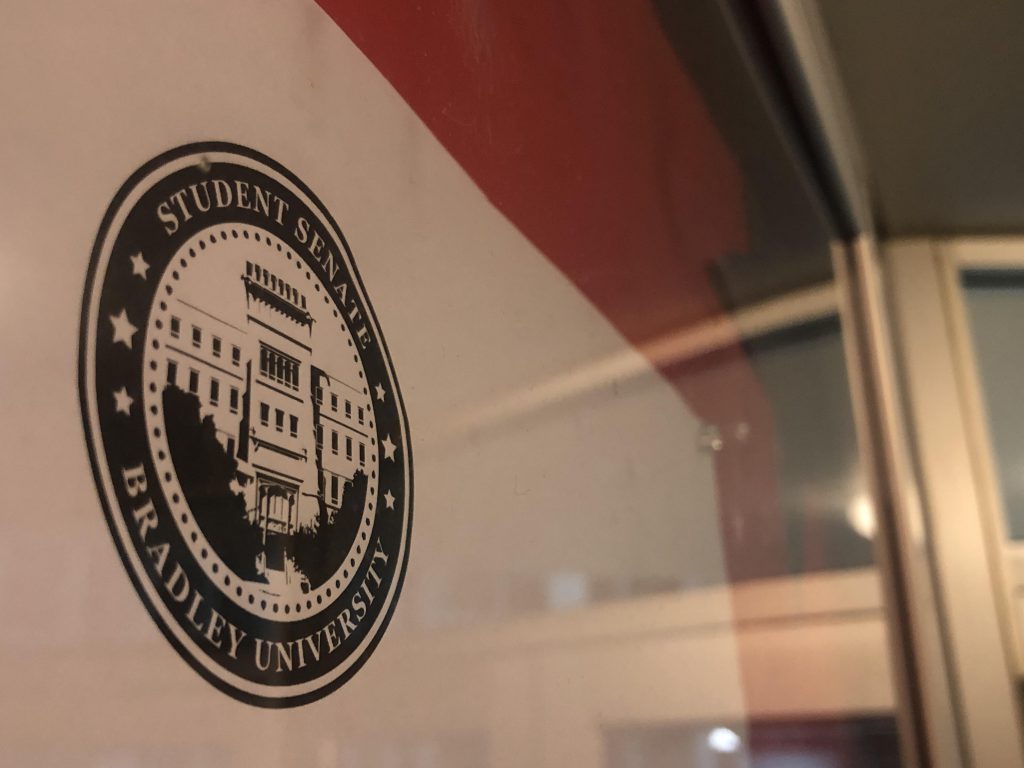
Student Senate passed a resolution on Feb. 24 addressing a mold issue on campus. This was brought forth through reports from constituents and a former member of Student Senate.
According to the resolution, mold has been found in University, Lovelace, Wyckoff halls and the Student Apartment Complex on several occasions. Specific rooms are kept confidential.
“The administration knows mold is a thing,” Brandy Wayne, Student Senate’s chairperson for internal affairs, said.“It happens either by the student or sometimes it could just be the facility, but they are made aware of the mold issue … They are taking action, but it is a case-by-case basis action.”
“This is hopefully one of the ways that the student’s voice is heard, and at Student Senate, we try our hardest to make sure that that student voice is heard, definitely if it has to deal with our safety,” Wayne said.
The resolution includes options such as installing moisture meters and humidity gauges in residence halls to help identify areas of likely mold growth and a notification system to make students aware if mold has been found in the building they are living in. There is also a section of the resolution that suggests students receive information on mold during freshman orientation.
The resolution stated that mold can cause “fever, worsened asthma, pneumonia, kidney damage, pulmonary hemorrhaging and a host of other illnesses hazardous to health.”
“My goal is for students to identify this, make it a knowledgeable thing, that mold isn’t to be taken lightly,” Wayne said.
Currently, residential living puts in a work order and contacts facilities when mold is reported, and then they investigate and clean the immediate issue. According to Ryan Bair, executive director for residential living and student conduct, areas where mold has been found are repeatedly checked to see if it returns.
Bair said housing and facilities monitor residential halls for any sign of mold growth and abnormalities.
“Daily monitoring, within public spaces, is primarily accomplished through Custodial Services,” Bair said. “Student rooms or non-public areas are thoroughly inspected at least once per year when the room is not occupied.”
The university takes precautionary measures to reduce the chances of mold. This includes having dehumidifiers in areas of high humidity, ensuring environment control systems function properly and ensuring that roof and walls are not allowing water into the building.
Additionally, work has been done in bathrooms to allow better air flow, Bair said.
The resolution would allow for a foundation of what to do if mold is found in a residence hall, rather than the university handling things on a case-by-case basis. This would be a supplement for the action administration is already taking.
“Here, it allows for people to be knowledgeable about what mold looks like and what causes it can do,” Wayne said. “It can make you sick, and sometimes you don’t know why you’re sick, so mold can be a problem for that.”
Wayne said mold has not been a frequent issue this academic year, but there have been enough cases for the Department of Internal Affairs of Student Senate to address it.
According to Bair, most cases of mold in the past year have been in University Hall and each case has been resolved. Two cases of mold, in an undisclosed location, have been reported this semester.
Bair said the department has had discussions of what preventative work they can take this summer. They also have a meeting scheduled to review Student Senate’s resolution.
“I appreciate that Student Senate is concerned about the student living environment,” Bair said. “Student Senate has some good suggestions that we will consider moving forward.”
If the resolution is not heard by the administration, Wayne said Student Senate will take action to make sure the student body is educated about the topic.



